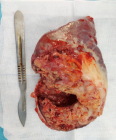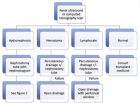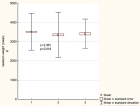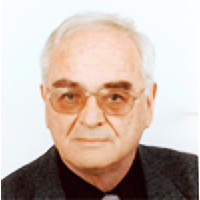Abstract
Research Article
Experience of Anesthesiology Residents in the conduct of their Research during Residency Training at Vicente Sotto Memorial Medical Center
Shein Melicer Ernacio* and Maria Pura L Rodriguez
Published: 26 February, 2025 | Volume 9 - Issue 1 | Pages: 001-009
Introduction: Research provides a framework for Anesthesia residents who are critical thinkers who approach clinical practice with an open mind. The goal of this study was to determine current attitudes regarding performing research during residency as well as perceived obstacles to doing so. A resident physician should be ready to face the challenges of the growing technology, tons of journals published in different portals, and increasing sophistication of the health care delivery system. Practice-based learning, systems-based practices, and medical knowledge are the vital core directly affected by strong research skill set.
Methods: The study was done through a survey of all 15 current residents in Vicente Sotto Memorial Medical Center Anesthesia Resident. They answered a 13 self-administered survey, which was adopted from previous similar research. Data was collected for 1 week to give time to the busy schedule of the resident.
Results: Respondents cited that the lack of time in balancing clinical and research responsibilities is the most common obstacle encountered by 86.7% of respondents. Researchers feel they have inadequate research skills and a lack of time in balancing responsibilities between family and work was among the most common answers by the respondents. 2nd prevalent barrier to research during residency was a lack of mentoring.
Conclusion: The top barriers to research are lack of time and inadequate access to research mentors. These barriers can be addressed to optimize the current research environment for residents. Anesthesia residents identified several critical aspects that they believe are obstacles to research. These findings can be used by programs to overcome hurdles and increase the inclusion of research into residency training.
Read Full Article HTML DOI: 10.29328/journal.ijcar.1001026 Cite this Article Read Full Article PDF
Keywords:
Anesthesia; Residency training; Research
References
- S.M.M. Center. Statement of Quality Policy for QMS. 2020.
- Ha JJ, Truong TT. Interest and experience of anesthesiology residents in doing research during residency training. Indian J Anaesth. 2019;49(4):257-262.
- Personett HA, Hammond DA, Frazee EN, Skrupky LP, Johnson TJ, Schramm GE. Road Map for Research Training in the Residency Learning Experience. J Pharm Pract. 2018;31(5):489-496. Available from: https://doi.org/10.1177/0897190017727382
- Fournier I, Stephenson K, Fakhry N, Jia H, Sampathkumar R, Lechien JR, et al. Barriers to research among residents in Otolaryngology-Head & Neck Surgery around the world. Eur Ann Otorhinolaryngol Head Neck Dis. 2019;136(3):S3-S7. Available from: https://doi.org/10.1016/j.anorl.2018.06.006
- Vinci RJ, Bauchner H, Finkelstein J, Newby PK, Muret-Wagstaff S, Lovejoy FH. Research during pediatric residency training: Outcome of a senior resident block rotation. Pediatrics. 2009;124(4):1126-1134. Available from: https://doi.org/10.1542/peds.2008-3700
- Nasr VG, Ahmed I, Bonney I, Schumann R. Research and Scholarly Activity in US Anesthesiology Residencies: A Survey of Program Directors and Residents. ISRN Anesthesiol. 2012;2012:1-9. Available from: https://doi.org/10.5402/2012/652409
- Devereaux PJ, Beattie WS, Choi PT, Badner NH, Guyatt GH, Villar JC, et al. How strong is the evidence for the use of perioperative beta blockers in non-cardiac surgery? Systematic review and meta-analysis of randomised controlled trials. BMJ (Clinical research ed.). 2005;331(7512):313-321. Available from: https://doi.org/10.1136/bmj.38503.623646.8F
- Papasavas P, Filippa D, Reilly P, Chandawarkar R, Kirton O. Effect of a mandatory research requirement on categorical resident academic productivity in a university-based general surgery residency. J Surg Educ. 2013;70(6):715-719. Available from: https://doi.org/10.1016/j.jsurg.2013.09.003
- Hames K, Patlas M, Duszak R. Barriers to Resident Research in Radiology: A Canadian Perspective. Can Assoc Radiol J. 2018;69(3):260-265. Available from: https://doi.org/10.1016/j.carj.2018.03.006
- Silcox LC, Ashbury TL, VanDenKerkhof EG, Milne B. Residents' and program directors' attitudes toward research during anesthesiology training: A Canadian perspective. Anesth Analg. 2006;102(3):859-864. Available from: https://journals.lww.com/anesthesia-analgesia/fulltext/2006/03000/residents__and_program_directors__attitudes_toward.30.aspx
- Chan JY, Narasimhalu K, Goh O, Xin X, Wong TY, Thumboo J. Resident research: Why some do and others don’t. Singapore Med J. 2017;58(4):212-217. Available from: https://doi.org/10.11622/smedj.2016059
- Williams AA, Ntiri SO. An Online, Self-Directed Curriculum of Core Research Concepts and Skills. MedEdPORTAL J Teach Learn Resour. 2018;14:10732. Available from: https://doi.org/10.15766/mep_2374-8265.10732
- Waheed A, Nasir M, Azhar E. Development of a Culture of Scholarship: The Impact of a Structured Roadmap for Scholarly Activity in Family Medicine Residency Program. Cureus. 2020;12(3):1-7. Available from: https://assets.cureus.com/uploads/original_article/pdf/28109/1612429805-1612429796-20210204-18203-1ezm2li.pdf
- Crawford P, Seehusen D. Scholarly activity in family medicine residency Programs: A National Survey. Fam Med. 2011;43(5):311-317. Available from: https://www.researchgate.net/publication/51112240_Scholarly_Activity_in_Family_Medicine_Residency_Programs_A_National_Survey
- The Canadian Plastic Surgery Research Collaborative (CPSRC). Barriers and Attitudes to Research Among Residents in Plastic and Reconstructive Surgery: A National Multicenter Cross-Sectional Study. J Surg Educ. 2017;74(6):1094-1104. Available from: https://doi.org/10.1016/j.jsurg.2017.04.004
- Omi FR, Barua L, Banik PC, Faruque M. A protocol to assess the risk of dementia among patients with coronary artery diseases using CAIDE score. F1000Research. 2021;9:1256. Available from: https://f1000research.com/articles/9-1256
Figures:

Figure 1
Similar Articles
-
Quantification of the pressures generated during insertion of an epidural needle in labouring women of varying body mass indicesWee MYK*,Isaacs RA,Vaughan N,Dubey VN,Parker B. Quantification of the pressures generated during insertion of an epidural needle in labouring women of varying body mass indices . . 2017 doi: 10.29328/journal.hacr.1001004; 1: 024-027
-
The impact of two different doses of Dexmedetomidine to Local Anesthetic Mixture on the quality of single injection Peribulbar Block in Vitreoretinal operationsNagat S EL-Shmaa*,Ramadan Salama,Mohamed El-Kashlan. The impact of two different doses of Dexmedetomidine to Local Anesthetic Mixture on the quality of single injection Peribulbar Block in Vitreoretinal operations . . 2018 doi: 10.29328/journal.ijcar.1001005; 2: 001-008
-
The incidence of hemodynamic and respiratory adverse events in morbidly obese presenting for Bariatric surgeryTomi Myrberg*,Veronica Atterhem,Magnus Hultin . The incidence of hemodynamic and respiratory adverse events in morbidly obese presenting for Bariatric surgery. . 2018 doi: 10.29328/journal.ijcar.1001006; 2: 009-017
-
Assessing the Neurocognitive function effects of ketamine in Cardiac Surgical patientsDemet Dogan Erol*. Assessing the Neurocognitive function effects of ketamine in Cardiac Surgical patients . . 2018 doi: 10.29328/journal.ijcar.1001007; 2: 018-022
-
Effects of intraoperative epidural anesthesia during hepatectomy on intraoperative and post-operative patient outcomesChristopher Mallard,Brad Withers,Brooke Bauer,Paul A Sloan,Sean Dineen,Annette Rebel*. Effects of intraoperative epidural anesthesia during hepatectomy on intraoperative and post-operative patient outcomes. . 2018 doi: 10.29328/journal.ijcar.1001008; 2: 023-030
-
Benzine as fire source in operation roomDomingos Dias Cicarelli*,Fernando Chuluck Silva,Carolina Martins Ricardo,Ana Carolina Makinoo Antunes,Murilo Alexandre Carmona,Maria José Carvalho Carmona. Benzine as fire source in operation room. . 2019 doi: 10.29328/journal.ijcar.1001011; 3: 001-002
-
Anaesthetic management of an elderly patient with ischaemic heart disease and previous MI undergoing elective inguinal hernia repair: Case reportKhaleel Ahmad Najar(Senior Resident)*,Anka Amin(Assistant Professor),Mohammad Ommid(Associate Professor). Anaesthetic management of an elderly patient with ischaemic heart disease and previous MI undergoing elective inguinal hernia repair: Case report. . 2020 doi: 10.29328/journal.ijcar.1001013; 4: 001-003
-
The choice of optimal modern muscle relaxants (rocuronium bromide, atracurium besilate and cisatracurius besilate) in one-day surgery in childrenNasibova EM*. The choice of optimal modern muscle relaxants (rocuronium bromide, atracurium besilate and cisatracurius besilate) in one-day surgery in children. . 2020 doi: 10.29328/journal.ijcar.1001014; 4: 004-012
-
A witnessed intra-operative blood transfusion-related air embolism under epidural anaesthesia for vesicovaginal fistula repairGyadale AN*,Adeyanju BT,Ayegbusi EO,Adeyiolu AT,Olabode AA,Suberu SO,Olajide MA. A witnessed intra-operative blood transfusion-related air embolism under epidural anaesthesia for vesicovaginal fistula repair. . 2022 doi: 10.29328/journal.ijcar.1001018; 6: 001-003
-
Anesthesia for epilepsy surgeryAlexandre Pacchioni,João Kazuo Yano,João A Assirati*. Anesthesia for epilepsy surgery. . 2023 doi: 10.29328/journal.ijcar.1001021; 7: 001--005
Recently Viewed
-
Navigating Weight Management with Stevia: Insights into Glycemic ControlShashikanth Kharat*, Sanjana Mali*. Navigating Weight Management with Stevia: Insights into Glycemic Control. New Insights Obes Gene Beyond. 2024: doi: 10.29328/journal.niogb.1001021; 8: 006-008
-
Phenotypic differences in Obese Patients with Heart Failure with Preserved Ejection Fraction (HFpEF) - A Mini ReviewMichelle Nanni*, Vivian Hu, Swagata Patnaik, Alejandro Folch Sandoval, Johanna Contreras. Phenotypic differences in Obese Patients with Heart Failure with Preserved Ejection Fraction (HFpEF) - A Mini Review. New Insights Obes Gene Beyond. 2024: doi: 10.29328/journal.niogb.1001020; 8: 001-005
-
The influence of opioid on the microstructural organization of the Wall OT the uterus of the white laboratory ratMateshuk-Vatseba LR,Ivankiv Ya T,Ivankiv TM*. The influence of opioid on the microstructural organization of the Wall OT the uterus of the white laboratory rat. Clin J Obstet Gynecol. 2019: doi: 10.29328/journal.cjog.1001036; 2: 135-137
-
Clinical and Histopathological Mismatch: A Case Report of Acral FibromyxomaMonica Mishra*,Kailas Mulsange,Gunvanti Rathod,Deepthi Konda. Clinical and Histopathological Mismatch: A Case Report of Acral Fibromyxoma. Arch Pathol Clin Res. 2025: doi: 10.29328/journal.apcr.1001045; 9: 005-007
-
Hepatic Angiomyolipoma Mimicking Hepatocellular Carcinoma: Another Rare Case ReportM Azzakhmam*,M Allaoui,R Elochi,A Elktaibi,M Oukabli. Hepatic Angiomyolipoma Mimicking Hepatocellular Carcinoma: Another Rare Case Report. Arch Pathol Clin Res. 2025: doi: 10.29328/journal.apcr.1001044; 9: 001-004
Most Viewed
-
Evaluation of Biostimulants Based on Recovered Protein Hydrolysates from Animal By-products as Plant Growth EnhancersH Pérez-Aguilar*, M Lacruz-Asaro, F Arán-Ais. Evaluation of Biostimulants Based on Recovered Protein Hydrolysates from Animal By-products as Plant Growth Enhancers. J Plant Sci Phytopathol. 2023 doi: 10.29328/journal.jpsp.1001104; 7: 042-047
-
Sinonasal Myxoma Extending into the Orbit in a 4-Year Old: A Case PresentationJulian A Purrinos*, Ramzi Younis. Sinonasal Myxoma Extending into the Orbit in a 4-Year Old: A Case Presentation. Arch Case Rep. 2024 doi: 10.29328/journal.acr.1001099; 8: 075-077
-
Feasibility study of magnetic sensing for detecting single-neuron action potentialsDenis Tonini,Kai Wu,Renata Saha,Jian-Ping Wang*. Feasibility study of magnetic sensing for detecting single-neuron action potentials. Ann Biomed Sci Eng. 2022 doi: 10.29328/journal.abse.1001018; 6: 019-029
-
Pediatric Dysgerminoma: Unveiling a Rare Ovarian TumorFaten Limaiem*, Khalil Saffar, Ahmed Halouani. Pediatric Dysgerminoma: Unveiling a Rare Ovarian Tumor. Arch Case Rep. 2024 doi: 10.29328/journal.acr.1001087; 8: 010-013
-
Physical activity can change the physiological and psychological circumstances during COVID-19 pandemic: A narrative reviewKhashayar Maroufi*. Physical activity can change the physiological and psychological circumstances during COVID-19 pandemic: A narrative review. J Sports Med Ther. 2021 doi: 10.29328/journal.jsmt.1001051; 6: 001-007

HSPI: We're glad you're here. Please click "create a new Query" if you are a new visitor to our website and need further information from us.
If you are already a member of our network and need to keep track of any developments regarding a question you have already submitted, click "take me to my Query."

















































































































































